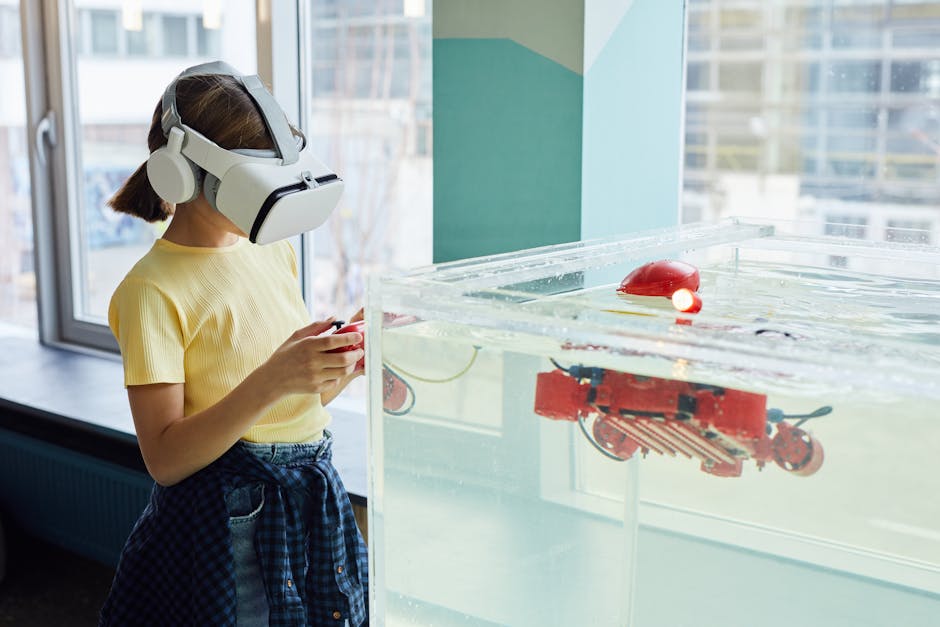
In an era where global collaboration and technological advancement are paramount, Riyadh’s Vision 2025 presents a bold strategy that is capturing international attention. This ambitious plan not only aims to transform Saudi Arabia’s economic landscape but also to foster educational partnerships with NATO countries. Central to this vision are the GCAP (Global Combat Air Programme) and underwater innovations. These initiatives underscore Riyadh’s commitment to enhancing technological expertise and educational exchange, impacting educational approaches across NATO countries and beyond.
Understanding GCAP and Underwater Innovations
The Global Combat Air Programme (GCAP) represents a collaborative venture focusing on developing next-generation air combat capabilities. By leveraging cutting-edge technology, GCAP aims to create a versatile air defense system that is adaptable to various geopolitical challenges. Meanwhile, the focus on underwater innovations highlights Riyadh’s dedication to expanding its maritime capabilities, reflecting a strategic pivot to ensuring national security and fostering sustainable growth in marine technology.
Both GCAP and underwater innovations are deeply intertwined with educational advancements. As these programs evolve, they necessitate a skilled workforce adept in new technologies, thereby influencing educational frameworks within NATO countries. This presents a unique opportunity for educational institutions to integrate advanced technology training into their curricula.
Impact on Education in NATO Countries
Riyadh’s Vision 2025 is poised to impact education in NATO countries significantly. By prioritizing collaboration in defense and technology, it opens avenues for educational exchange and knowledge transfer. This section will explore the multifaceted influence of these initiatives on education systems within NATO member states.
Curriculum Development and Skill Enhancement
The advancements in GCAP and underwater technologies necessitate a corresponding evolution in educational curricula. NATO countries are recognizing the need to equip students with skills relevant to these fields. As such, universities and technical colleges are increasingly offering specialized courses in aerospace engineering, marine technology, and cyber defense.
Furthermore, partnerships between Saudi educational institutions and those in NATO countries are fostering an environment of collaborative learning. Students are benefiting from exchange programs that provide exposure to diverse educational systems and cutting-edge research facilities.
Research and Innovation Collaborations
Riyadh’s focus on technological advancement encourages collaborative research initiatives between Saudi Arabian and NATO country universities. These partnerships are crucial in driving innovation, particularly in areas such as , robotics, and sustainable energy solutions related to defense systems.
Joint research projects not only push the boundaries of technological capabilities but also provide students and educators with invaluable hands-on experience. This symbiotic relationship enhances the academic profile of participating institutions and contributes to the global pool of knowledge.
Online Learning and Remote Collaboration
With the global shift towards digital learning, Riyadh’s Vision 2025 places strong emphasis on leveraging technology to facilitate online education. NATO countries are integrating these practices to enhance accessibility to high-quality education across borders.
Platforms for virtual classrooms, webinars, and collaborative research are being developed to support this initiative. This enables students from various regions to participate in educational programs without the constraints of physical proximity, broadening the reach of educational opportunities.
The Role of Language and Cultural Exchange
Language and cultural exchange programs are integral to fostering an understanding between Saudi Arabia and NATO countries. These programs are vital in preparing students for global citizenship, emphasizing the importance of cross-cultural communication in a technologically interconnected world.
Language courses and cultural workshops offered by educational institutions encourage students to appreciate diverse perspectives and contribute effectively to international collaborations. This cultural competency is crucial for future professionals who will work in global teams and drive forward initiatives like GCAP and underwater innovations.
Looking Ahead: The Future of Educational Collaboration
As Riyadh continues to implement its Vision 2025, the emphasis on education and technological innovation will undoubtedly influence NATO countries. Investments in education will not only equip the next generation with the necessary skills but also strengthen international alliances through collaborative endeavors.
Future developments may include enhanced cooperation in setting global standards for educational curricula, promoting sustainability in technology, and expanding research initiatives that align with global security objectives. The shared commitment to educational excellence and technological advancement positions both Saudi Arabia and NATO countries to meet future challenges adeptly.
FAQ
Q: How does GCAP influence educational systems within NATO countries?
A: GCAP encourages curriculum development in aerospace and defense technologies, prompting NATO countries to integrate specialized courses and collaborative research initiatives into their educational systems.
Q: What opportunities exist for students under Riyadh’s Vision 2025?
A: Students benefit from exchange programs, joint research projects, and online learning platforms, gaining exposure to diverse educational practices and cutting-edge technologies.
Q: How do underwater innovations impact educational strategies?
A: The focus on underwater technology drives the demand for expertise in marine engineering and sustainable maritime solutions, prompting educational institutions to offer relevant programs and research opportunities.
Q: What role do language and cultural exchange programs play?
A: These programs enhance cross-cultural communication skills, preparing students for effective collaboration in international projects and fostering global citizenship.
Q: How is online learning integrated into Riyadh’s Vision 2025?
A: Online learning platforms facilitate remote education, enabling broader access to high-quality educational programs and fostering international academic collaboration.
Conclusion
Riyadh’s Vision 2025, with its focus on GCAP and underwater innovations, is a catalyst for profound changes in education systems across NATO countries. By embracing technological advancements and prioritizing international collaboration, educational institutions are poised to equip students with the skills necessary for the future. These efforts not only support Riyadh’s strategic goals but also foster a global community committed to innovation and cooperation. Through shared knowledge and cultural exchange, the path forward promises enhanced educational opportunities and stronger international partnerships.


